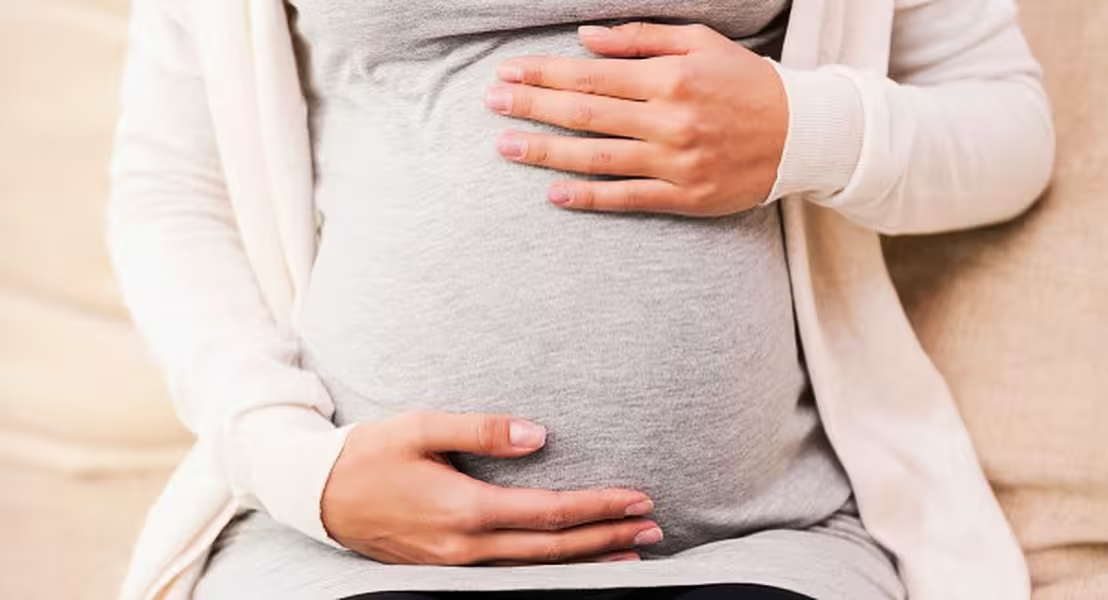
Digital Desk Staff
Pregnant women are to be offered faster access to vaccines after the Cabinet today approved a series of recommendations from National Immunisation Advisory Committee (Niac).
As The Irish Times reported earlier today, the advice will see pregnant women offered an mRNA vaccine between 14 and 36 weeks gestation, after consulting with their doctor.
The decision to prioritise pregnant women for vaccination comes after seven cases of Covid-related placentitis were reported in Ireland, six of which led to a stillbirth.
The Cabinet has also approved the use of the Johnson and Johnson vaccine in Ireland for the over-50s and relaxed its restrictions on the AstraZeneca shot.
Previously, the recommendation on AstraZeneca was it was only to be used for the over-60s, but Niac's recommendation to reduce this to over-50s was approved by Cabinet today.
Minister for Health Stephen Donnelly said this afternoon it was now “full steam ahead” for the vaccination programme.
He said Ireland was on course to administer between 160,000 to 180,000 vaccinations this week and more than 700,000 for the month of April.
Spacing out doses
Following Cabinet approval of changes it is expected the HSE could begin administering the single-dose Johnson & Johnson shot this week.
The Cabinet has also accepted another Niac recommendation that there should no change in the gap between doses of Pfizer or Moderna’s vaccine, which Mr Donnelly had asked it to examine amid fears of supply shortfalls to other shots.
The Minister said earlier this month that there was a case to be made for spacing out the doses, and that data internationally and in Ireland showed “incredibly positive signs” in the reduction of cases and hospitalisations from the first dose alone.
However, senior medics and experts had urged caution on the step, saying a significant benefit to the vaccination programme would be needed to justify it. Mr Donelly had sought the advice of the Deputy Chief Medical Officer Dr Ronan Glynn and Niac on the issue.
However, it also emerged today that deliveries of the Johnson & Johnson vaccine will be halved this week after a shipment of around 26,000 doses of the vaccine for the Republic was caught up in the fallout from an incident at a US factory producing the vaccine.
It is unclear if the deliveries impacted are only those due this month, which are of lower volumes, or if larger consignments scheduled for the weeks ahead, will also be impacted.
Revised parameters
The revised parameters for vaccine rollouts are:
- Those aged under 50 years, including those at very high or high risk of severe Covid-19 disease should receive an mRNA vaccine - Pfizer or Moderna. The exception to this is where a two-dose mRNA vaccine schedule may not be feasible, in which case consideration may be given to Janssen for those aged 18-49 years.
- Those of any age with immunocompromising conditions should receive Pfizer or Moderna mRNA vaccine if feasible and timely.
- Those aged 50 years and older who have already received their first dose of the AstraZeneca vaccine, and those under 50 years at very high or high risk of severe COVID-19 disease, should receive their second dose 12 weeks after receipt of their first dose. Those under 50 years of age who do not have a very high or high risk of severe Covid-19 disease should have their second dose of 16 weeks after the first dose, to allow for assessment of emerging evidence regarding the risk and benefits of the second dose of this vaccine.
- There should be no change to the recommended interval of four weeks between the two doses of the Pfizer or Moderna mRNA vaccines.
- All pregnant women should be offered Pfizer or Moderna mRNA vaccine between 14-36 weeks, following medical advice.
Previous infection
NIAC have recommended that, for those individuals who have had a laboratory confirmed Covid-19 infection within the previous 6 months:
- Those aged 50 years and older should receive a full Covid-19 vaccine schedule.
- Those aged under 50 years and immunocompromised should receive a full Covid-19 vaccine schedule.
- Those aged under 50 years and who are not immunocompromised and who have had a Covid-19 infection in the previous 6 months should receive a single dose of Covid-19 vaccine, at which point they should be considered fully vaccinated.












